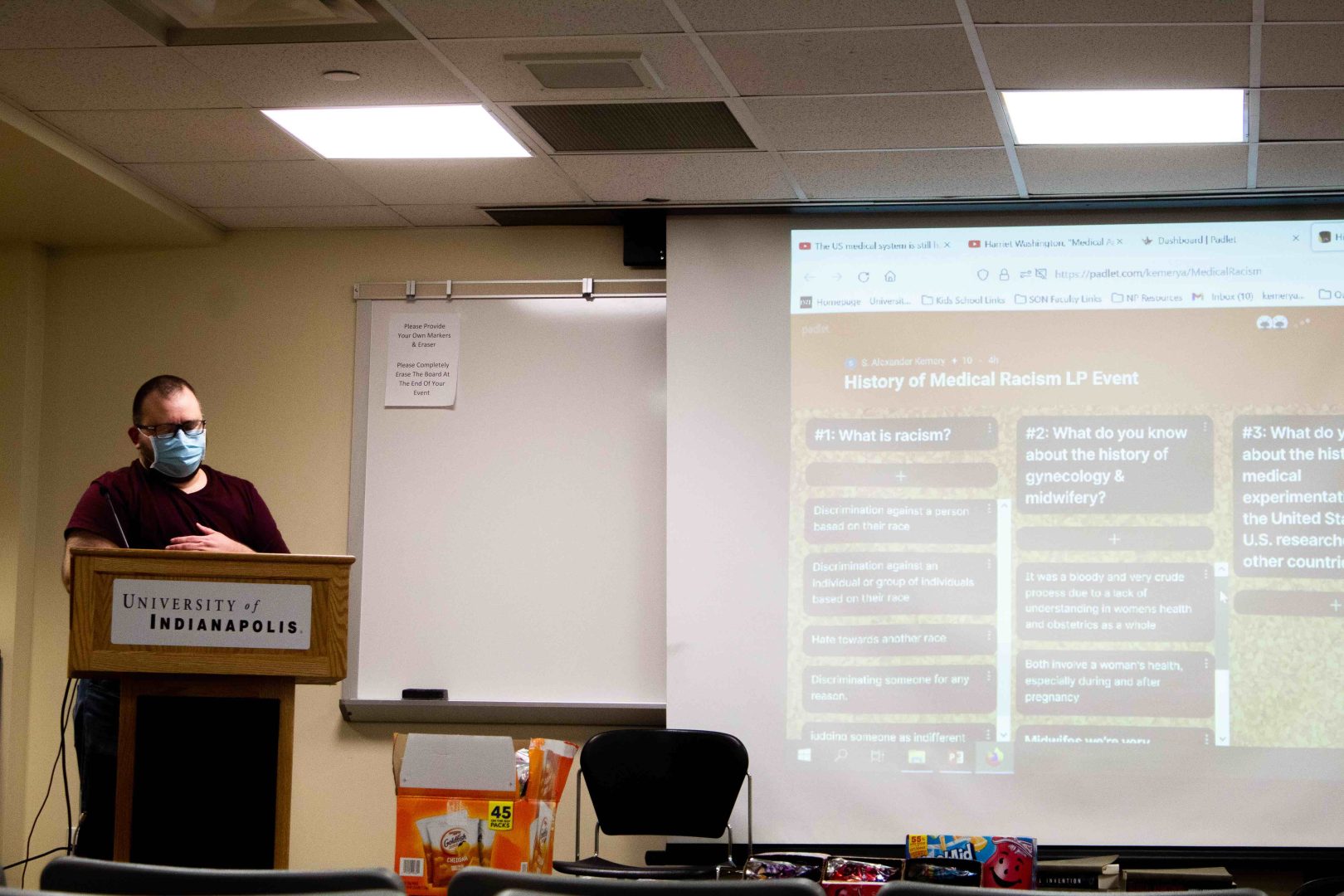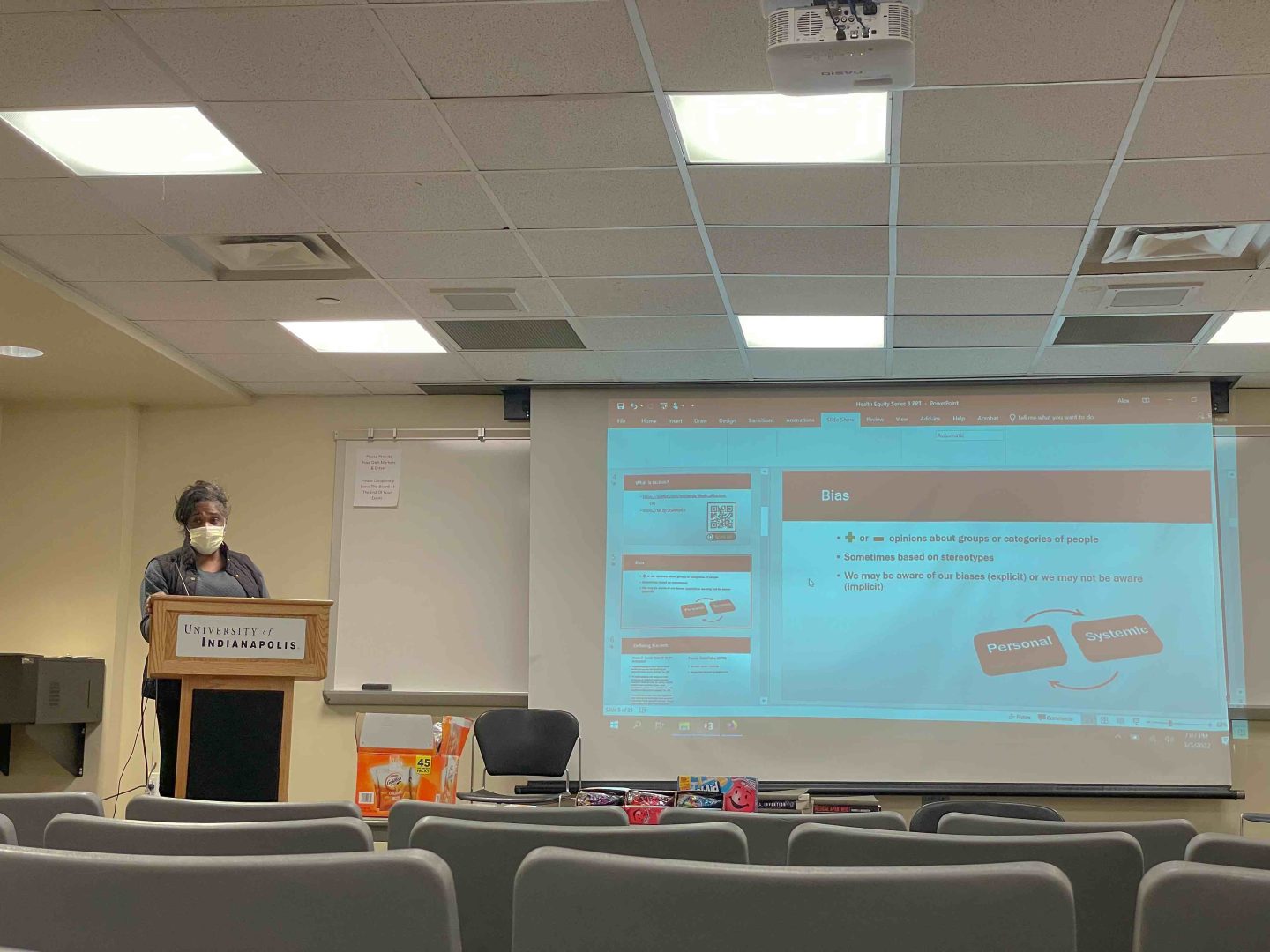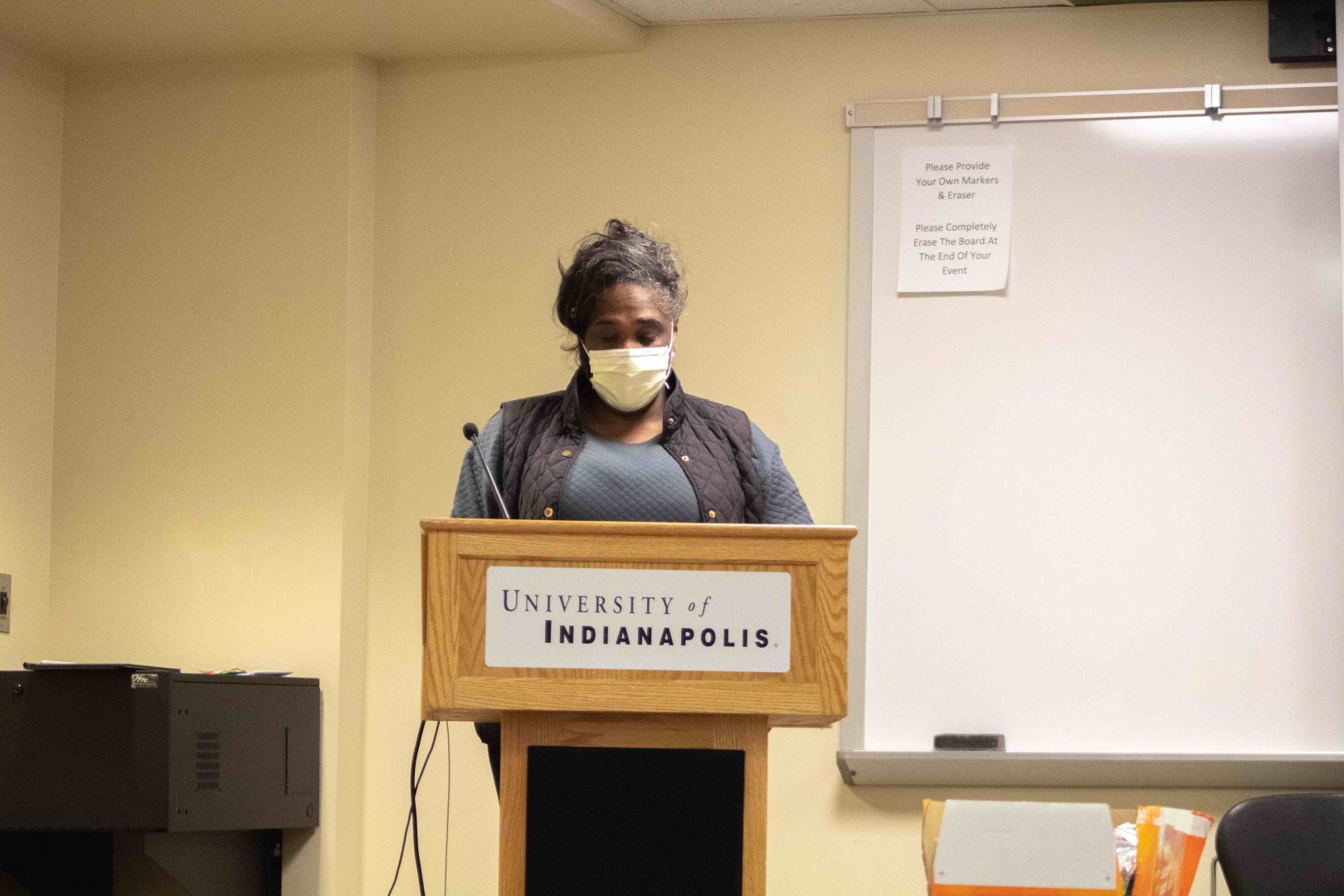The Student Nursing Association (SNA) at the University of Indianapolis hosts a series of events called the “Health and Equity Series,” where they discuss important topics pertaining to nursing. At last week’s program, they discussed medical racism, talking about past instances and what it looks like.
Senior nursing major and President of SNA Taylor Klene said the main goals of the Health and Equity Series are to spread awareness about inequalities and biases that future healthcare professionals see daily.
“Our next program is the medical racism topic. A lot of what we’re going to talk about—and I put a disclaimer out as well—is some of the previous atrocities in the medical field that were committed specifically pertaining to racism,” Klene said. “And also kind of talking about ways that we as future professionals or, just individuals, can prevent these things from recurring and what we can do to further make these biases less and less prominent.”
Professor of Practice in the School of Nursing Janice Wellington said the topic of medical racism was chosen by the SNA because there is so much that happened in the past and there’s a need to shed light on the issue.
“There has been such [a number of] disparities in the past with medical racism,” Wellington said. “And there are a lot of things that are trying to change some of those things. So we are trying to share light with our nursing students regarding that.”
According to Klene, the SNA was approached by ‘The Inclusive Excellence Coalition’ to partner up to put on these events. Klene said she feels as though these events are important because they’re typically topics people avoid because they are uncomfortable discussions.
“I think the topics we have chosen, specifically medical racism, are important discussions to have so that we can be culturally competent providers . . . ,” Klene said. “I think that it speaks for itself that all individuals seeking healthcare should be treated equally. I believe that no matter your past or maybe current decisions or even ethnic background racism, I believe that everyone deserves equal care.”
Klene said she believes these discussions are necessary not only for future healthcare workers, but also students here at UIndy, and believes that everyone should attend because people from any major can benefit from the lectures.
“I do believe that non-nursing students should attend the lectures,” Klene said. “Although they are pertaining more to the healthcare field, us as individuals, we can always grow and learn more about how to be, not necessarily accepting that might not be the best word, but just competent. And even like our last discussion on cultural humility, just how to best treat people like people.”
Wellington said she hopes people are enlightened by these programs and that they help open people’s minds up to things like medical racism and health disparities. Klene also said she believes these lectures could help people overcome said biases and learn how to approach someone of a different racial or ethnic background.
“These are not just focused [on] healthcare providers. I think, and I’ve said it over and over, but just learning how to [be] better, be more inclusive and just grow as people is an important thing to know how to do,” Klene said. “And I think that maybe even non-UIndy students, if there was a bigger audience that would like to attend these, that could even be something that we grow [toward] in the future.”
The next SNA Health and Equity lecture will take place on Apr. 13 from 7 p.m. – 8 p.m. They will be discussing the LGBTQ community and how to interact with someone of different sexual backgrounds. You can learn more about this event through the UIndy events page.

Assistant Professor of Nursing S. Alexander Kemery presents in the Heath and Equity Series. Kemery showed several videos while allowing for discussion about the topic. 
Instructor for School of Nursing Janice Wellington discusses the problems of explicit and implicit bias within the medical field and how these biases effect the medical field.








